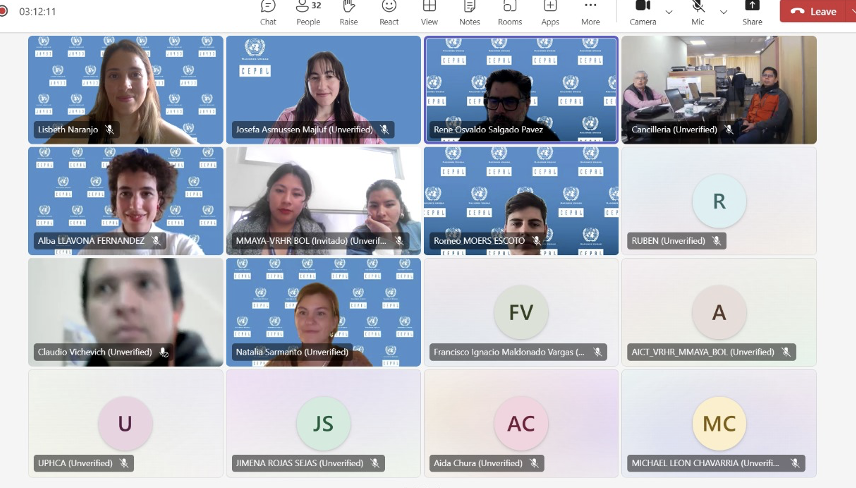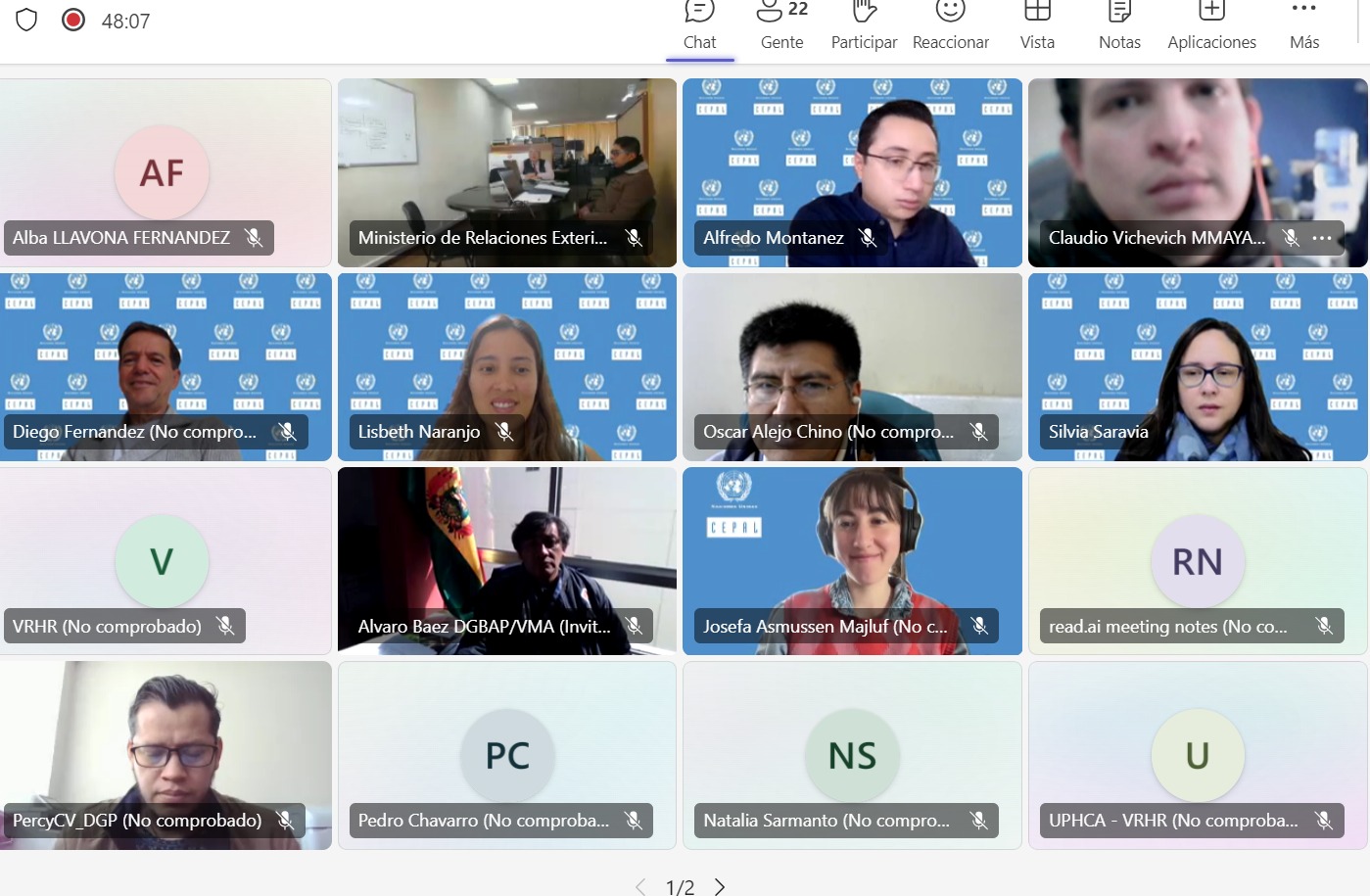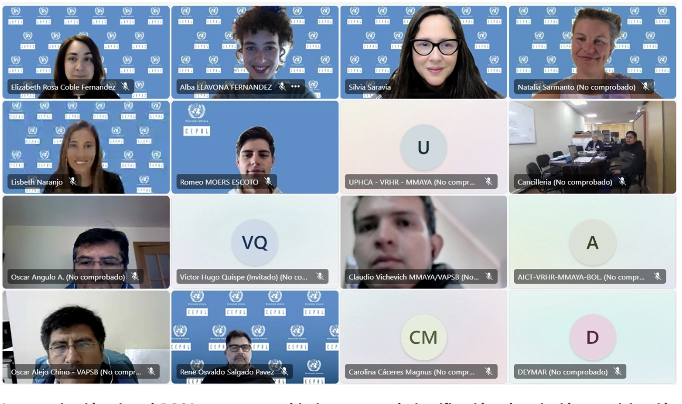ROSA: Online Assistance: Water, Energy, Food, and Environment Nexus in the Plurinational State of Bolivia (Session 4)
Work area(s)
Topic(s)
On October 4, 2024, the Fourth Online Training session was held as part of the ROSA project (Network and Observatory for Water Sustainability), titled “Water, Energy, Food, and Environment Nexus,” and was exclusively directed at the Plurinational State of Bolivia. The three-hour event aimed to strengthen capacities related to adopting the nexus approach and provide useful methodological tools for the design and evaluation of cross-sectoral policies in the regional context.

The event, led by Silvia Saravia Matus, Economic Affairs Officer at ECLAC, consisted of three sessions and a roundtable discussion. The first session, presented by Natalia Sarmanto, ECLAC Expert, provided an introduction to the Nexus approach. This section addressed the background, key interrelationships between water, energy, food, and the environment in Latin America and the Caribbean, as well as the main challenges and advantages of adopting this approach.
After an interactive activity, the training continued with the second session, presented by Lisbeth Naranjo, ECLAC Expert, which explained the Methodological Guide for Designing Actions with a Nexus Approach. This session covered the initial phases of the adoption process, including diagnosis and the formulation of actions. Concrete examples, such as the Reventazón River Basin in Costa Rica and the ecosystem-based adaptation methodology in Mexico, illustrated how actions can be prioritized to maximize impact across sectors.
The third session, presented by Alba Llavona, ECLAC Expert, focused on the phases of planning, implementation, monitoring, and evaluation of the Nexus approach. Two key examples were highlighted:
• The use of the theory of change in the planning of water funds in Latin America and the Caribbean.
• The use of the Performance Evaluation Framework in the National Watershed Plan of the Plurinational State of Bolivia.
During this session, the advantages of adopting the methodological guide to address the interrelationships between sectors were emphasized, promoting greater efficiency in resource use and more integrated decision-making.
The final part of the event was a roundtable discussion moderated by Josefa Asmussen, ECLAC Consultant, in which lessons learned from implementing Nexus-focused actions in the Plurinational State of Bolivia were discussed. Participants analyzed the challenges faced in policy formulation, such as the Misicuni Multiple System and irrigation policies, highlighting the solutions applied and the lessons learned.
The event concluded by emphasizing the importance of adopting the Nexus approach to achieve more effective and intersectoral management in the Plurinational State of Bolivia. The training provided participants with practical tools and essential knowledge to advance towards more integrated and sustainable policies in the region.
Related content

Third Virtual Training Session under the ROSA Project for the Plurinational State of Bolivia: “Application of Circular Economy Principles in the Drinking Water and Sanitation Sector”
On Friday, September 6, 2024, the third online training session on the “Application of Circular Economy Principles in the Drinking Water and Sanitation Sector” was held, directed at the Plurinational…

ECLAC organizes the second virtual training session as part of the ROSA project's technical assistance to the Plurinational State of Bolivia: "International Processes Around Water Resources."
The virtual ROSA training aimed to review the justification, description, participation, and outcomes of the various international processes related to water management, including aspects relevant to…

First Online Technical Assistance under the ROSA Project – Plurinational State of Bolivia
As part of the Water Sustainability Network and Observatory (ROSA) project, the first online technical assistance for the Plurinational State of Bolivia was held on February 15, 2024. This inaugural…